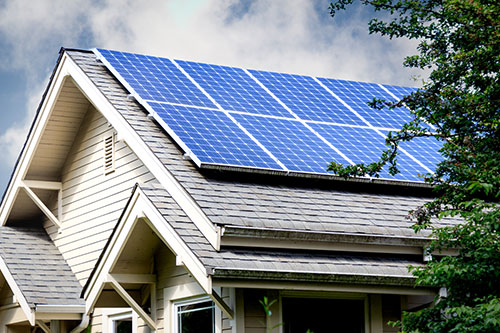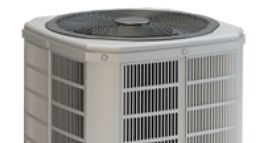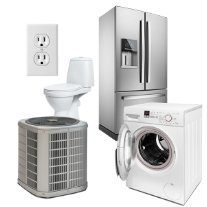Are you thinking about solar panels? Here’s a good primer to help you consider important factors in making the leap to solar power.
Know the Lingo
There are two primary technologies for solar power: photovoltaics, or PV, and concentrating solar power, or CSP. For home solar, PV are the initials you need to know.
PV is the type of solar with which you’re likely familiar. PV systems use solar panels on rooftops (or in fields) and absorb photons from the sun’s rays to create electricity. One PV device is known as a cell, and each cell typically produces 1 or 2 watts of power. To generate enough electricity to meet your energy needs, you’ll need more than one cell. Multiple cells connected in chains create panels, also known as modules, and several panels connected form arrays. Arrays are what connects to the electrical grid to power your home.
To complete your home solar system, you’ll also need mounting structures to point your panels toward the sun and the components that convert the direct-current (DC) electricity produced by arrays into the alternating-current (AC) electricity that will power your appliances and devices.
Is Your Roof Right for Solar?
Solar works on most roofs, but tree cover is a factor that could limit a system’s effectiveness. Excessive shade means arrays won’t absorb enough sunlight to generate the power you’re seeking.
Other factors to weigh include the size of your roof, its shape (will it allow enough adjacent space for the number of arrays you want?) and its slope (which could limit the amount of sunlight arrays receive based on the angle).
The U.S. Department of Energy advises that solar panels work best on south-facing roofs with a slope of 15 and 40 degrees.
How to Find a Good Solar Company
The DOE recommends doing your research and reading as many reviews as possible to find a reputable and reliable company. It also suggests looking into “solarize campaigns,” which let you and your neighbors pool together to negotiate rates and select an installer.
How Much Power Will Your Solar System Produce?
PVWatts, a tool created by the National Renewable Energy Laboratory, estimates the energy production and cost of energy of PV energy systems based on address. Be advised, the tool is only meant for informational purposes and a solar installer can better provide a true estimate of how much power your solar system will produce.
How Much Will You Save or Spend for Solar Power?
How much you can save with solar depends on your electricity consumption and the size of your solar system, as well as electricity rates in your city.
The DOE says solar is competitive with local utility rates in cities around the country, and the cost of solar has steadily decreased since 2009 and is expected to continue do so. It also notes that energy-efficient appliances will help you get more from your solar system (look for the Energy Star label).
The cost of systems varies, but they generally are less expensive if you buy the system rather than leasing, according to DOE. But cost of installation can be weighed not only against savings on utility bills, but also against any incentives or tax breaks you can receive from installing a system, as well as potential increased resale value on your home. A great resource to use to search for incentives is the Database for State Incentives for Renewables & Efficiency.
In addition to any financial incentives, going solar can help you reduce your environmental impact.

More Resources
If you want to learn more about the ins and outs of going solar, great resources recommended by the DOE include:
- A Homeowner’s Guide to Solar Financing: Leases, Loans and PPAs
- Making the Case for Solar Toolkit
- Residential Consumer Guide to Solar Power
And if you want to protect your budget against breakdowns, get a Home Service Plan quote from 2-10 Home Buyers Warranty today!









